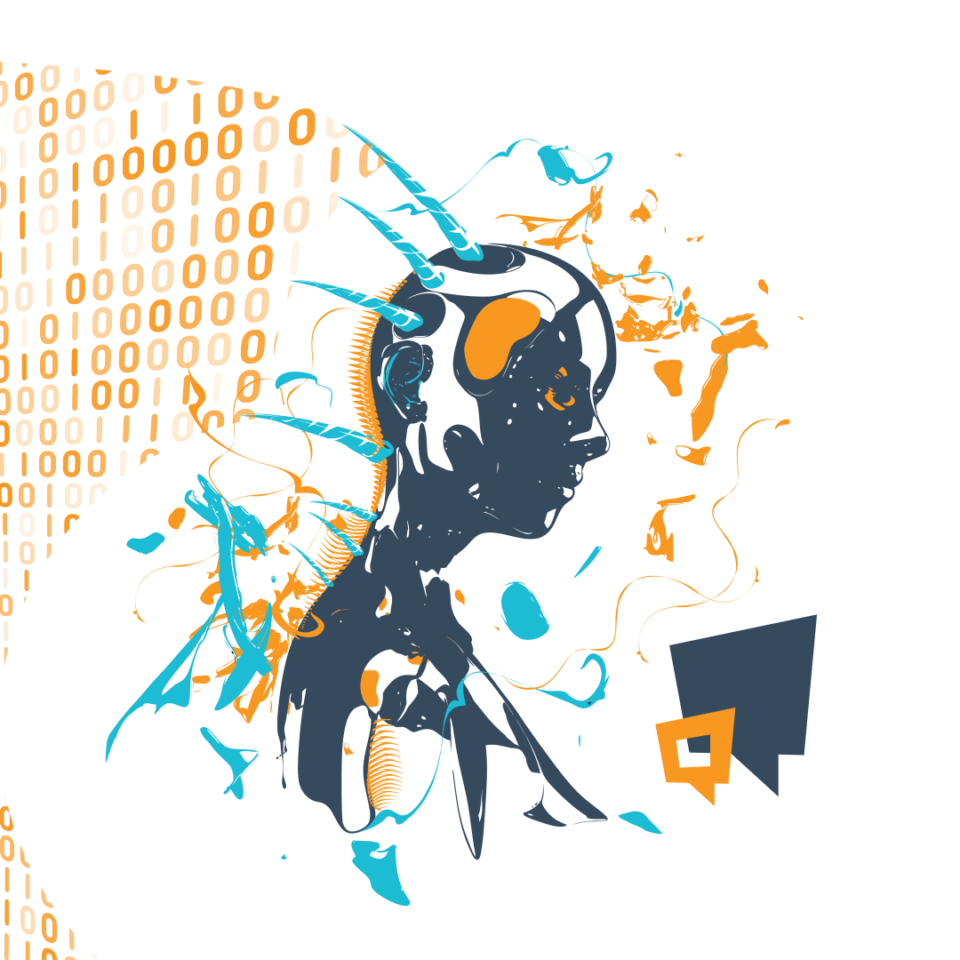Why was Gibson right?
Neuromancer, the book that has been published 35 years ago, anticipated cyberspace and the development of technology before it existed. The author, William Gibson, has made a quantum leap into the world of science fiction with his Neuromancer.
He accurately predicted people linking together to a global computer network over the Internet – something like Facebook today, cyber terrorism and wars, digital currency and people’s lives in states – corporations instead of national states and all of that we are living practically today. He also envisioned connecting people to computers and computer networks through a “plug” on their heads.
35 years later and Elon Musk’s just started his project of implementing electrodes in the brain. This project will enable exactly what Gibson predicted in his book, which makes the book, and its author, very much relevant today.
Gibson was right about many things. He has envisioned many things but mostly the look and shape of today’s Internet and how it affects society. The only remaining question is what the future will bring for the Internet, people, and online communication.
Neuromancer – the book that predicted the future
The novel, Neuromancer, published in 1984, is considered a seed-maker of cyberpunk within science-fantasy literature. In it, Gibson described the world of the dystopian future in which he lives more virtually than realistically, and from today’s perspective, all this in a stunning amount reminds us of the world we live in.
In the book Neuromancer, Gibson created the word cyberspace and explained it as “a consensual hallucination created by millions of connected computers.” 35 years later and it feels like we are living the same “Gibson future,” just maybe less romantic and stylish than in his book.
The protagonist of the novel is Case, a hacker who can enter into cyberspace using a device called deck which is hooked up to hardware mounted on Case’s head. Once he is “plugged in,” he can see the systems he’s hacking in virtual reality. Sound a little bit familiar, doesn’t it? We already have something similar today – VR headsets along with games and different VR worlds.
The second thing Neuromancer got right is the space station called Freeside, that has casinos, shopping places, and hotels. This kind of space tourism resembles Elon Musk’s SpaceX program for touristic trips to space.
Moreover, Neuromancer has all kinds of different technology on display, from active camouflage to robotic eyes. However, one of them is the most ubiquitous: neural implants. In the novel, everyone has some kind of neural implant/hardware in their brain that is allowing them to access the Internet, relive memories, or even experience life through other people’s senses. Sounds sci-fi, right?
Not really. Neuralink, a company Elon Musk founded is working on data transmission system between people and computers. Musk even said, “This is going to sound pretty weird, but ultimately, we will achieve symbiosis with artificial intelligence.”
The Neuralink aim is to create a “neural lace,” a mesh of ultra-thin electrodes that capture as much information from the brain as possible and sends them to the devices such as computers and smartphones.
They are not the only ones – start-up Neurable is working on allowing your mind to control VR and AR interfaces. This only again confirms that Gibson was right.
One of the most exciting and scary themes of today’s world – artificial intelligence – is also the dominative plotline of Neuromancer. In Neuromancer, the “strong AI” thinks like a human being and if you unleash it, it has the potential to break the society and humanity. Both Stephen Hawking and Elon Musk have commented on AI as a potential apocalypse for society while Musk even said that AI is “humanity’s biggest existential threat.”
We can call Gibson’s Neuromancer the book of prophecy. It sure as hell correctly predicted some of our current technology and the connection of humans online via the Internet and technology. The challenge is in the future of communication and ultimately the future of marketing.
Where will the advancement of technology lead us, when speaking about online communication strategies and will we, after all, even need digital strategies?
The future of online communication and digital strategies
New technologies are shaping the way we live and perceive the world and they will continue to shape the way we communicate, especially online. That also applies to marketing and its future.
Facebook and Google’s algorithms and methodologies are evolving every minute, and the use of artificial intelligence has contributed to it. And this is just the beginning; the future has a lot more possibilities to bring in for people but also for online communication and marketing.
Like we in sci-fi movies, 100 years from now, we will have the technology to implement full-body scans that take minimal time to detect early warning signs of disease. Like in medicine, similar things could happen to digital marketing and communication.
Probably, we will be able to track people online and offline and with the help of big data and AI we will produce hyper-personalized messages to each person (maybe even directly in their brains with Neuralink?).
As the medicine will become more personalized and people will be treated based on their genes and environment, so will the marketing messages.
New technologies will change the way we speak, communicate and perceive brands. However, they will also affect the jobs and market we know today. One research even says that by 2050, 4-billion people will tend to be self-employed, which will bring us to the culture of individuals, creativity, and independence.
This will all change the way people feel about brands and the future of marketing.
In the future, somewhat sci-fi world, where people will be utterly individual, brand communication and digital strategies will also have to change. Brands will have to invest more time and resources in examining the environment of their consumers, taking more time to understand their deepest needs and desires.
Technology and AI allow us to use information easily, and there have been more consumers who choose their brands according to their values, not just their needs. With more data being available, online communication will become even more personalized or hyper-personalized.
With the help of AI, data collected will show that every consumer has a different personal context, which means that their consumption and communication needs are often very different.
Those brands that will not follow the new digital strategy that will be intertwined with modern technology and constant change will remain detached from the reality of their target audience. Technology is constantly changing our world and the best thing for brands and marketers it to embrace them (the right changes, of course).
Following the trends and accepting the change gives you a competitive advantage. But, to accurately follow new trends and technologies, you need to do a few things right.
First, you need to get familiar with them, evaluate the effects of their implementation, plan, integrate the technological changes in the strategies and put them in the function of achieving business and communication goals. Only then their application to marketing or communication is justified.
What will the future bring for marketing?
As you can imagine by now, the gap between sci-fi movies, books and reality are slowly shrinking. Marketing is not an exception. From Google’s RankBrain and Voice Search to personalized Amazon recommendations, artificial intelligence and new technologies are changing the digital scenery.
AI is bringing all kinds of advantages for marketers on the table. From effective data analysis to personalization, AI will play a crucial role in the marketing future. Even today, brands and marketers that use AI in digital marketing and online communications save time and energy with automated marketing services.
Using AI digital marketing strategies will transform the way brands engage with their audience. But in which direction these changes will go? Here are 3 predictions for marketing in 2030:
1. Personalized Marketing
As we already discussed it, the audience doesn’t want irrelevant messages targeted to everyone. The marketing messages will need to undergo a narrower shift from target audiences to timely circumstances.
One example of this hyper-personalized messages future digital strategies will have, could be the specific mobile notifications, triggered by complex combinations of personal data, location data and environment data. The key point that will connect consumers and marketing is their personalized data.
2. The Reign of Personal ChatBots
Chatbots are the most prominent example of the use of AI that will only continue to grow. For now, they act as a virtual assistant for consumers (like Alexa and Siri) but in the future, they could replace mobile apps and even websites.
X.ai is one example of further development of chatbot technology and in the not too distant future, advertisers will be filtered by personal bots such as Amy.
3. From Storytelling to Predicting
The buzz in online communication strategies is about storytelling and provoking emotions with content, but in the future, marketing will rely on personal data and prediction. Some experts say marketing will shift towards the interpretation of personal information from Personal Data Exchanges to determine patterns and predict the audience’s future outcomes, needs, desires, and trends and respond to those quickly.
All in all, the future of digital strategies and marketing could be summed up in the famous quote – the only constant is the change. The changes that await marketing and online communication are the natural development of the industry. But these changes need to be carefully implemented.
As we mentioned, you need to know all about them, plan their implementation in your marketing and communication strategies and assess their application effects. Only a planned and strategic implementation of new technologies will bring success to businesses and brands.
By following the trends and keeping up with these technological changes’ marketers can be relevant and better than their competition. This is exactly what Homepage does and what is known about. Just a recent example – we’ve changed the overall advertising methodology because most players like Facebook and Google are advertising their platform based on machine learning. Always following the latest trends and strategically implementing them in our own business!



